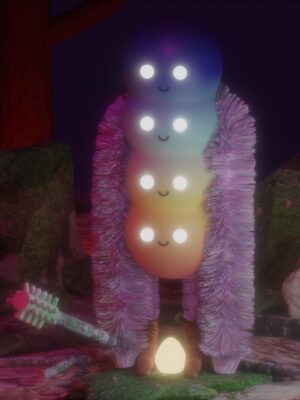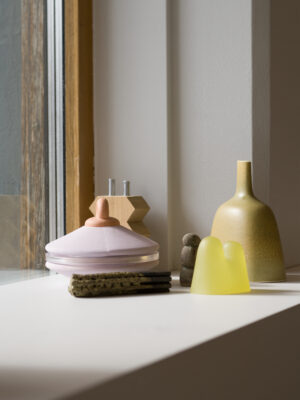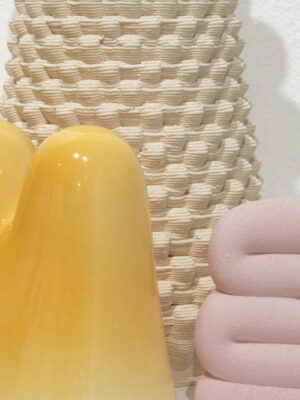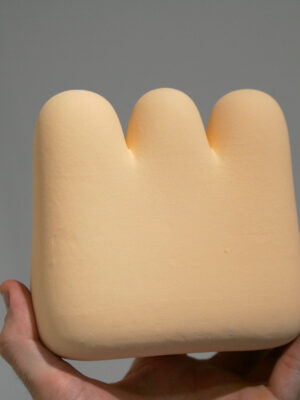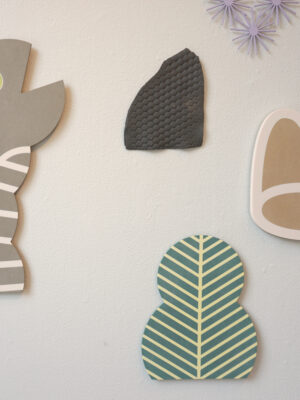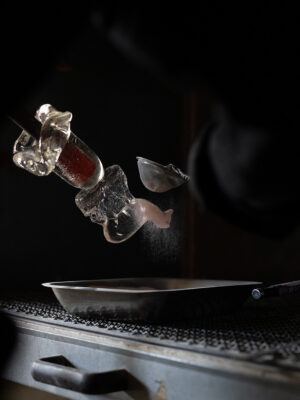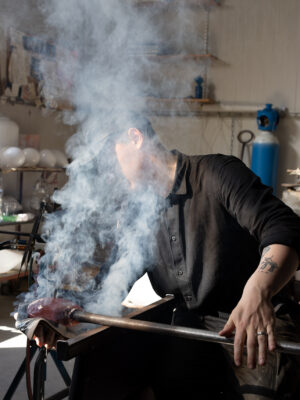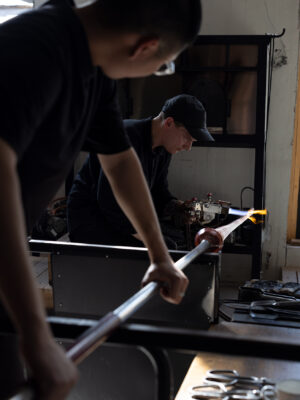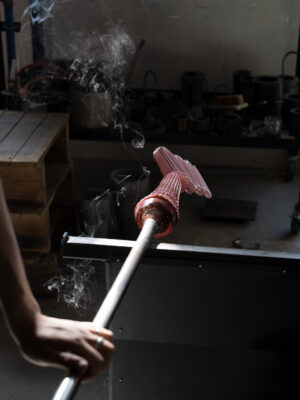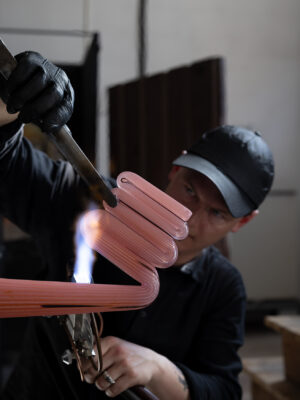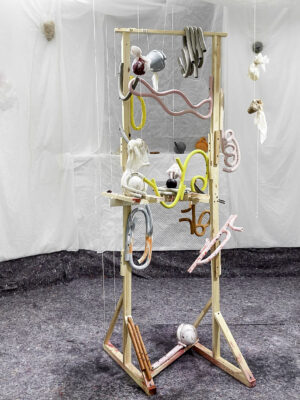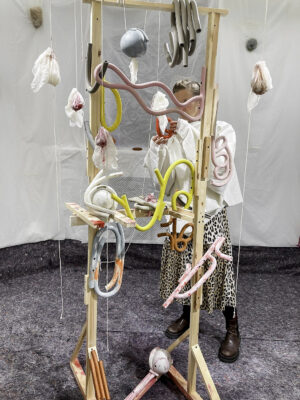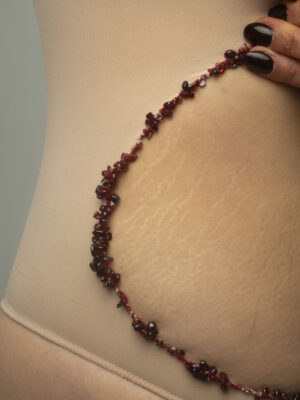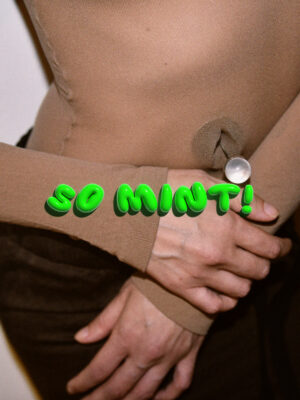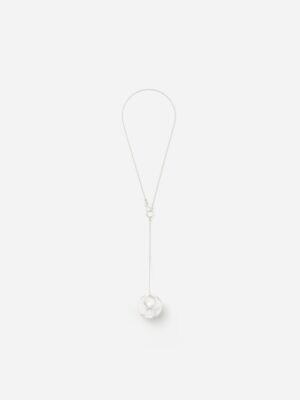This being my first visit to Sweden, I was very excited to learn how this perpetual transformation plays out here. While descending over Göteborg I was directly amazed by all the forests and lakes that were stretching infinitely beyond the plane window. Soon I would learn that the country’s vast nature inspires its artists tremendously.
In Göteborg I met jewellery artist Karin Roy Andersson, one of the co-founders of Gallery Four. She showed me how she beautifully transforms found materials like plastics or undervalued resources like reindeer skin into ‘scaled’ jewellery evoking images of birds, fish and tree bark. The use of reindeer leather comes from the collaboration with artist Monica Blind Påve who works with Sami craft (duodji) and with whom Andersson shared materials, experiences, sources of inspiration, local knowledges and techniques. Artist David Bramham, who I met the next day, takes another take on nature, combining traditional mediums with digital techniques like laser cut and CNC milling and materials such as resin with ceramics and wood. We talked about spirituality encountered in nature, magical eggs, how the symbol of the snake which is found in many different cultures plays a role in his work and how we notice that rituals become ever more important in daily life.
Making space for and giving voice to Indigenous, diasporic and marginalized communities within our institutions is at the forefront of what we do. In this matter collectivity, mutual understanding and sharing resources is key.
Stockholm continued to astonish me with incredibly well-equipped workshops, like the former porcelain factory Gustavsberg with numerous kilns, hotshops and studios, where we were shown around by the very talented glass artists of STHLM Glass. The most inspiring moment of this experience however was the IASPIS x Undisciplined Crafting Conversations Panel Talk: Collective Crafting. Joining a conversation with curators Zoe Black, Maria Ragnestam and Sarah Darro led by Veronika Muráriková, founder of the Undisciplined Podcast, we discussed how we could keep on recontextualising and subverting current power structures through crafts. Bringing professionals together from all over the globe it became clear that we all shared similar goals. Making space for and giving voice to Indigenous, diasporic and marginalized communities within our institutions is at the forefront of what we do. In this matter collectivity, mutual understanding and sharing resources is key.
This discussion was carried on in the conversation I had with artist Tomas Colbengtson and Current Obession’s Marina Elenskaya. Colbengtson, being Sami himself, refers to Sami culture in his work; he investigates cultural identity and both historical and contemporary conditions of Indigenous peoples. We talked about settler colonialism and exploitation colonialism and how both systems created parallel contested experiences for the oppressed people, then and now. But most importantly we discussed how art plays a significant role in translating those experiences in something captivating that can be used to tell the stories of these, now sometimes diasporic, communities and bring them together.
I detected a similar thread in the installation of OBS! (Olga Olivares, Berenice Hernandez, Estefania Orozco) presented in KAOLIN gallery. Through ceramics, textiles and food, in this case a drink made of hibiscus flower, they recollected feelings of a diasporic home and created togetherness by making the audience participating in their work.
What Sweden taught me is that craft is a means for storytelling and sharing knowledge. To understand how things are made and why they’re made in a particular way, is more fundamental to contemporary life than ever. Craft is a global language of material, provenance and making. It is about learning the value of things, and therefore of life itself.
Amanda Pinatih was invited to Sweden through IASPIS expert visiting programme between 2-9 October, 2022
This article is part of the Undisciplined. Crafting Conversations series, produced in relation to the second episode discussing collective crafting hosted by Amanda Pinatih, Sarah Darro, Maria Ragnestam and Zoe Black. For more information follow Undisciplined. Crafting Conversations on Spotify and Instagram.
